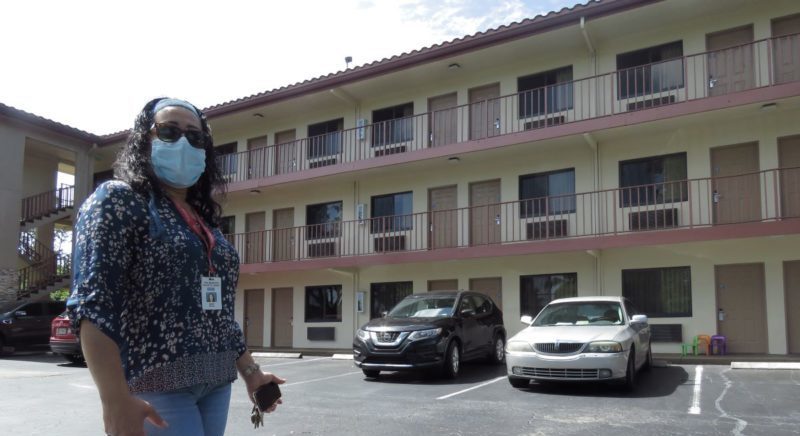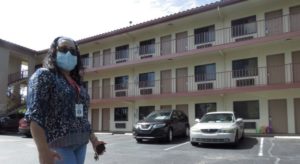
Before COVID-19 changed everything, service delivery used to be a family affair. Parents and case managers met – often for an hour or more – to talk about the family’s struggles, create budgets, and implement family action plans, while the children colored or played on the floor nearby.
At Adopt-A-Family, our work has always been about those face-to-face touchpoints, where staff can look clients square in the eye and say, “I believe in you and in your ability to get through this and come out stronger. I’m here to help.”
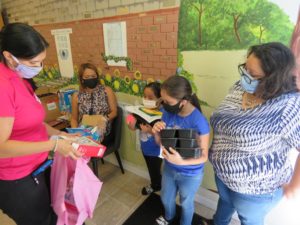
Daron Morse and Odet Rodriguez of Project Grow hand out food, games, and school supplies to students.
Since the first case of COVID-19 was diagnosed in Florida, we shifted almost overnight to virtual and contactless service delivery. For every case manager in every program, that means relying on phone calls and teleconferencing platforms to stay in touch – a tough proposition in a field predicated on human interaction.
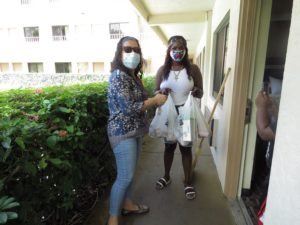
Isabel Steube delivers groceries to one of her clients in early May.
And at the same time, there are more people than ever who need our help.
The Housing Stabilization Program (HSP), which provides rent and utility assistance to families at risk of homelessness, has seen a dramatic spike in calls from people experiencing job and income loss. To meet the demand, HSP hired three additional staff members and implemented an expedited virtual intake process. From March-June 2020, the Housing Stabilization Program provided emergency rent and utility assistance to 110 families, double the caseload for the same period in 2019.
The Homeless Resource Center (HRC) team responds every day to families in crisis. In May alone, 17 families were housed with Rapid Re-Housing assistance, 16 families were placed in emergency shelter, and three were moved to permanent supportive housing. “These clients still need us. They need showers. They need clothes. We can’t stop because of the coronavirus,” said Abbey Hartman, Shelter Services Coordinator at Adopt-A-Family’s 19-unit family homeless shelter.
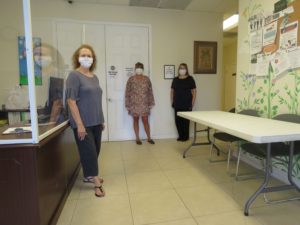
AAF staff at Program REACH wear face masks and practice social distancing when tending to clients.
Fieldwork is starkly different. HRC case managers used to make 20 home visits per week, sitting at each family’s table and exploring what was going well and what wasn’t. Now, brief exchanges take place at the front door. Smiling through their masks, case managers drop off groceries, toiletries, diapers, cleaning products – anything to help the family get by.
As for the agency’s six residential programs, all remain at capacity and no one will ever be evicted because they lost their job to coronavirus and can’t pay the rent. The agency continues to provide housing and emergency shelter to over 120 families on any given night, with new safety protocols in place.
Family Advocate Vivenne Owen, who normally enjoys face-to-face interactions with her Project SAFE clients, still comes to the office at least once a week. When clients see her car in the parking lot, they pop over and visit – wearing masks, of course. Even when she’s working at home, she is available and present for her clients by phone or video. Like every Adopt-A-Family team member, she’s working hard every day to remind her clients one reassuring thing in a frightening time: “We’re still there.”
